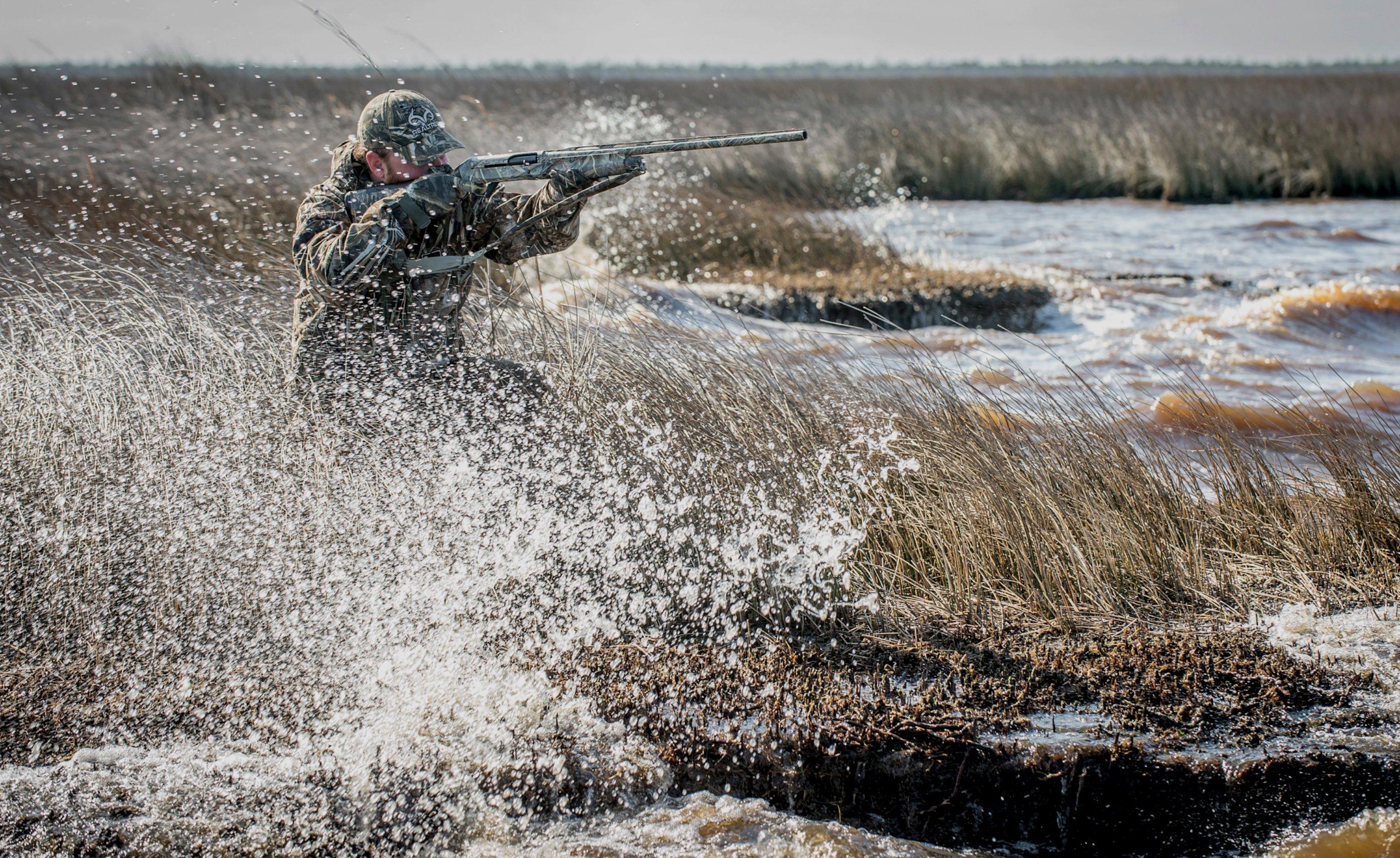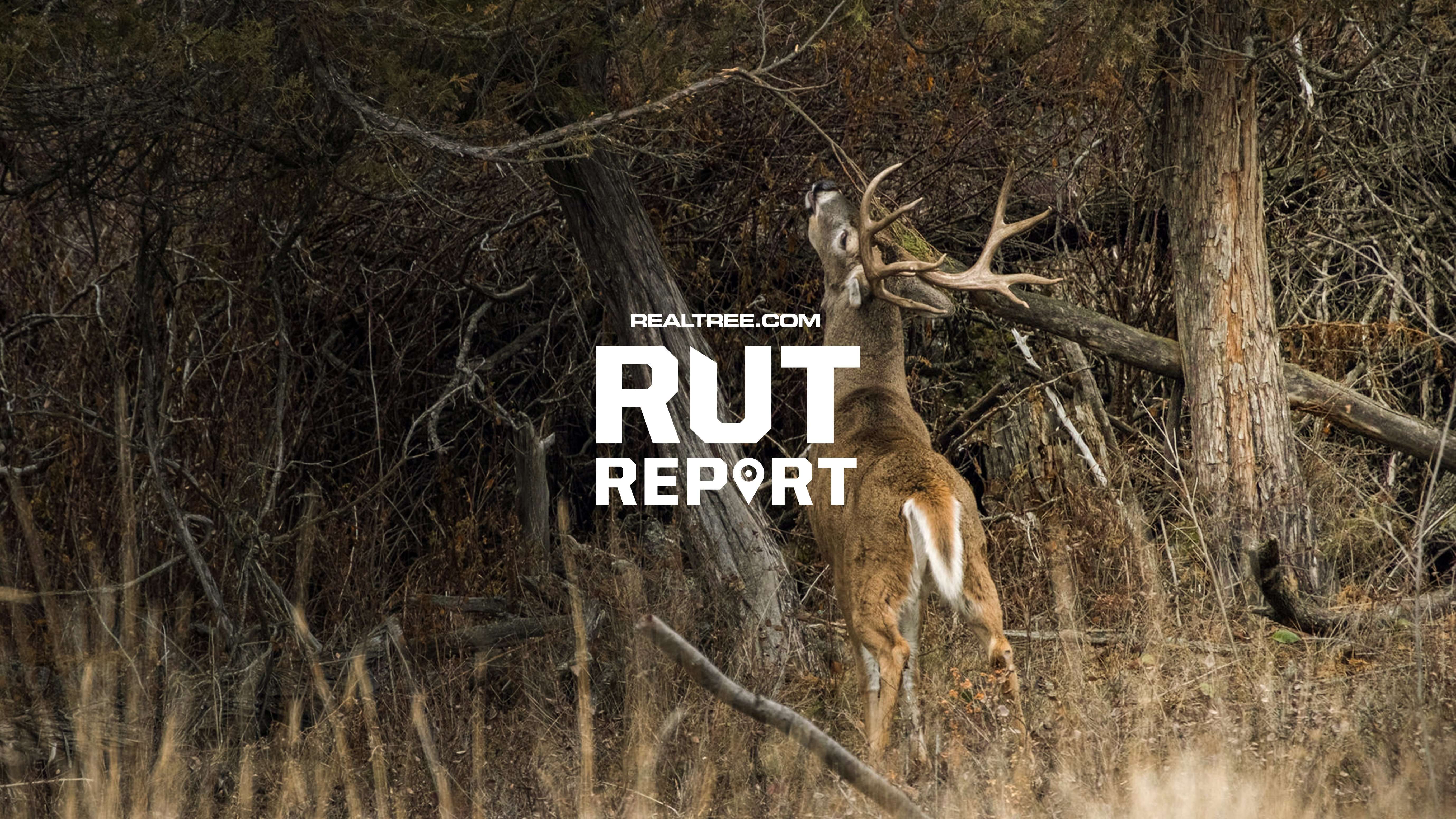Gusty winds can be a blessing or curse for waterfowlers. Tweak your tactics and approach to make big breezes work for you

Gusty winds can even make shooting difficult. Keep that in mind when setting spreads and calling the shot. Photo by Bill Konway.
Duck hunters typically rejoice when the wind blows, as it keeps birds moving and makes decoys dance like the real thing. But really big breezes can also create several challenges, and learning how to adjust during windy conditions can make or break your hunt. Try these tips the next time the wind howls.
DECOY SETUPS
“Windy days present challenges and opportunities,” said Graham Greseth, owner of MaXXed Out Guides, which runs duck and goose hunts in Minnesota, South Dakota, and Kansas. “The opportunity is that typically birds are more aggressive about wanting to get down. They aren’t going to swing or circle the decoys like they do on calm days. It’s usually one pass and in. However, on windy days, birds are going to have a lot more time to scour your setup looking for something that doesn’t look real.”
Therefore, Greseth typically doesn’t spread a lot of decoys downwind for birds to hover over on their approach.
“We tend to bunch the decoys right where we want to them to finish so that’s their main focus the whole way in,” he said. “When hunting geese in dry fields on windy days, I prefer a cross-shot (perpendicular) setup. When hunting ducks on windy days, we always set up for a traditional downwind-to-upwind set.”
Don’t Miss: 10 Old-School Duck Hunting Tips That Still Really Work
MOTION AND CALLING
Likewise, Cooper Olmstead, of Habitat Flats, which runs hunts in Canada and the Midwest, adjusts his blocks when the wind blows.
“When the wind is super strong, I tend to put the decoys closer to the blind or where I’m hunting from,” he said. “I usually string them out along the front of the blind, or shore, or wherever I am trying to get the birds to finish. Loose, longer spreads seem to work best with some motion on the upwind side. If the wind is too strong and they jump the motion, you can either move it or pull it completely.”
Olmstead said he also pays special attention to his calling approach during stiff breezes.
“You have to watch out on your calling,” he said. “If the birds are coming from directly downwind of you, you will need call quieter because it’s carrying the sound directly to them.”
SHOOTING
Gusty winds can also make wing-shooting more difficult. First, birds swinging downwind are really moving, so you must usually boost your lead and concentrate on follow-through to hit them. Also, decoying birds — especially geese and large puddle ducks — often appear as though they’re hovering and almost motionless, which can lull you into a sense of complacency.
Perhaps most important, approaching ducks and geese have lots of time to inspect your setup from above while fighting the wind. If they smell a rat, they can simply flick their wings and be 20 yards downrange in seconds, back-pedaling from easy killing range to questionable or irresponsible distances in the time it takes you to rise and shoot. Let ducks and geese finish as much as possible, and be ready to spring into action the instant they start to escape.
In addition, pay special attention to marginally hit birds during water hunts on windy days. Wounded ducks that hit the waves and start swimming or diving away can escape in seconds, especially on big water or in areas with lots of shoreline cover. Dispatch downed birds quickly and decisively, even if it means forgoing shots at ducks still in the air.
Don’t Miss: 8 Great Days to Duck Hunt in 2024
SAFETY
Finally, here’s a boring but necessary safety reminder. Boating during windy days creates many challenges, especially when you throw freezing conditions and shallow-draft boats into the mix. Be especially careful when running your duck boat in the wind. Take extra time when making tricky turns or navigating whitecaps. Wear your life jackets. And if it’s so windy that you think twice about going out, stay on shore. No limit of ducks is worth the risk, and you can always hunt when the water settles down.












